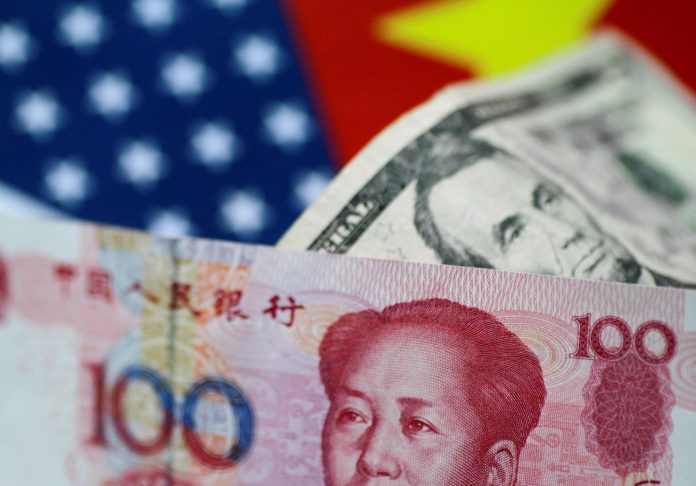China’s central bank has asked some of the country’s biggest lenders to refrain from immediately squaring their foreign exchange positions in the market, and to run open positions for a while in order to alleviate downside pressure on the yuan, two sources with knowledge the matter said.
As part of this informal “window guidance”, banks have been asked not to square their positions in the inter-bank foreign exchange markets after any U.S. dollar sales to clients, until their spot foreign exchange position hits a certain level, the sources said.
The move would effectively mean some of the heavy dollar purchases by companies would be absorbed by banks and sit on their books for a while, thus partially reducing downward pressure on the sliding yuan.
The directive came from a meeting the People’s Bank of China (PBOC) held with a few commercial banks earlier this week, the sources said. Banks were also told that companies requiring to purchase $50 million or more will need to seek the central bank’s approval, Reuters reported.
The People’s Bank of China (PBOC) did not immediately respond to Reuters request for comment.
GOLDEN WEEK
The latest efforts by the PBOC to smooth currency movements come just ahead of China’s golden week holidays in early October, which traditionally sees a spurt in overseas travel and dollar demand.
Widening yield differentials with other major economies, particularly the United States, and a faltering domestic economic recovery have piled pressure on the yuan. Its steady fall has also led to a lopsided market as exporters retain their dollar earnings in deposits rather than convert into yuan, or renminbi as the local currency is known in China.
“The source of the weakness in renminbi is very simply that interest rates in China are low, that activity in China is slow, therefore the rate of return of marginal capital invested in China is not as great as elsewhere, and therefore that impacts capital flows,” said Sid Mathur, head of Asia-Pacific macro strategy and emerging market research at BNP Paribas.
OVERSHOOT
China’s foreign exchange self-regulatory body said on Monday it would resolutely fend off risks of the yuan overshooting and pledged to take action when needed to correct one-sided and pro-cyclical activities, according to a statement published by the PBOC.
China has in recent months stepped up its efforts to slow the pace of yuan declines by setting persistently stronger-than-expected midpoint fixings. Earlier this month, it announced it would increase the supply of dollars by lowering the amount of foreign exchange that banks must set aside.
Chinese authorities “are simply smoothening the cycle. They want to avoid herding behaviour. They want to avoid a scenario where the market feels that they might be losing control. And so they’re just using different administrative tools to smoothen price action,” Mathur said.
Sources told Reuters last month that China’s currency regulators asked some banks to reduce or postpone their purchases of U.S. dollars in order to slow the yuan’s depreciation.

























Great step